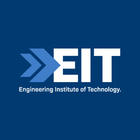Professional Certificate of Competency in Power Distribution
- Home
- Courses
- Engineering Institute of Technology (EIT)
- Professional Certificate of Competency in Power Distribution
Professional Certificate of Competency in Power Distribution
This professional development course is designed for engineers and technicians who need to gain a practical understanding of power distribution, switchgear, power cables, transformers, power factor correction, earthing, lightning protection, and network studies. Course Details This is a practical course in power distribution, focusing on medium voltage (1kV- 36kV) power…
Categories
COURSE DESCRIPTION
This professional development course is designed for engineers and technicians who need to gain a practical understanding of power distribution, switchgear, power cables, transformers, power factor correction, earthing, lightning protection, and network studies.
Course Details
This is a practical course in power distribution, focusing on medium voltage (1kV- 36kV) power considerations, switchgear, power cables, transformers, power factor correction, earthing, lightning protection, and network studies.
This course will help you understand practical power distribution fundamentals, determine short-circuit ratings quickly and effectively, and assess the influence of fault levers on switchgear ratings.
We will cover how to select the correct type of switchgear for the right application, and evaluate the advantages of modern state-of-the-art switchgear protection for your applications, including preventative maintenance information. You will also learn how to identify the different applications for various cable insulation types and how to specify correct power cable installation methods.
This course will also help you understand when and how to use single core cables versus three-core cables, as well as how to use and protect power transformers correctly. We will cover the ways of assessing and specifying correct grounding/earthing throughout your electrical network, and how to determine the need for Power Factor Correction (PFC) for your environment.
On top of this, you will learn how to assess the economic justification for installing PFC equipment, correctly specify PFC equipment and be aware of practical consequences, and confidently use computer simulation software to solve and predict power network problems.
Time Commitment & Duration
You are expected to spend approximately 5-8 hours per week learning the course content. This includes attending fortnightly webinars that run for about 90 minutes to facilitate class discussion and allow you to ask questions. This professional development program is delivered online and has been designed to fit around full-time work. It will take three months to complete.
REQUIREMENTS
For entry into most EIT degree programs, you need to have completed a minimum level of education similar to successful completion of Australian Year 12 with good grades.
EDUCATIONAL INSTITUTION
The Engineering Institute of Technology (EIT) delivers industry driven programs to equip its students with the skills required in the real industrial world. Its study options are available across Perth and Melbourne; and include classroom sessions, practical lab exercises, assessments, class discussions and self-study. Additionally, students enjoy access to industry experts based around the globe through live and interactive online presentations. All EIT programs provide access to remote laboratories and cutting-edge simulation software. Hands-on laboratory practicals are an essential component of EIT’s programs to ensure students put theory into practice. These hands-on workshops cover the major discipline-specific applied skills required for competency in engineering practice.
The Engineering Institute of Technology (EIT) delivers industry driven programs to equip its students with the skills required in the real industrial world. Its study options are available across Perth and Melbourne; and include classroom sessions, practical lab exercises, assessments, class discussions and self-study. Additionally, students enjoy access to industry experts based around the globe through live and interactive online presentations. All EIT programs provide access to remote laboratories and cutting-edge simulation software. Hands-on laboratory practicals are an essential component of EIT’s programs to ensure students put theory into practice. These hands-on workshops cover the major discipline-specific applied skills required for competency in engineering practice.




